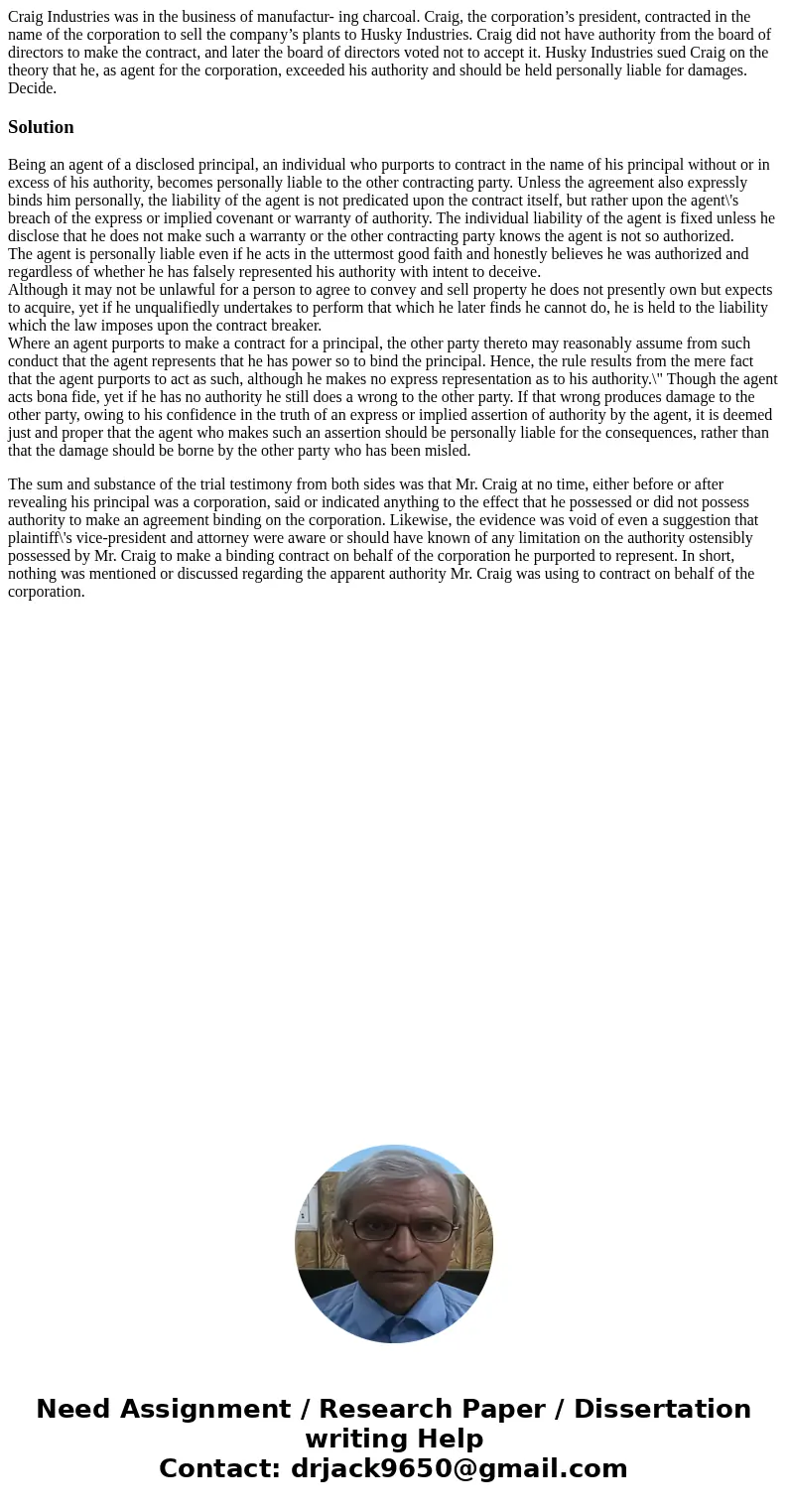Craig Industries was in the business of manufactur ing charc
Craig Industries was in the business of manufactur- ing charcoal. Craig, the corporation’s president, contracted in the name of the corporation to sell the company’s plants to Husky Industries. Craig did not have authority from the board of directors to make the contract, and later the board of directors voted not to accept it. Husky Industries sued Craig on the theory that he, as agent for the corporation, exceeded his authority and should be held personally liable for damages. Decide.
Solution
Being an agent of a disclosed principal, an individual who purports to contract in the name of his principal without or in excess of his authority, becomes personally liable to the other contracting party. Unless the agreement also expressly binds him personally, the liability of the agent is not predicated upon the contract itself, but rather upon the agent\'s breach of the express or implied covenant or warranty of authority. The individual liability of the agent is fixed unless he disclose that he does not make such a warranty or the other contracting party knows the agent is not so authorized.
The agent is personally liable even if he acts in the uttermost good faith and honestly believes he was authorized and regardless of whether he has falsely represented his authority with intent to deceive.
Although it may not be unlawful for a person to agree to convey and sell property he does not presently own but expects to acquire, yet if he unqualifiedly undertakes to perform that which he later finds he cannot do, he is held to the liability which the law imposes upon the contract breaker.
Where an agent purports to make a contract for a principal, the other party thereto may reasonably assume from such conduct that the agent represents that he has power so to bind the principal. Hence, the rule results from the mere fact that the agent purports to act as such, although he makes no express representation as to his authority.\" Though the agent acts bona fide, yet if he has no authority he still does a wrong to the other party. If that wrong produces damage to the other party, owing to his confidence in the truth of an express or implied assertion of authority by the agent, it is deemed just and proper that the agent who makes such an assertion should be personally liable for the consequences, rather than that the damage should be borne by the other party who has been misled.
The sum and substance of the trial testimony from both sides was that Mr. Craig at no time, either before or after revealing his principal was a corporation, said or indicated anything to the effect that he possessed or did not possess authority to make an agreement binding on the corporation. Likewise, the evidence was void of even a suggestion that plaintiff\'s vice-president and attorney were aware or should have known of any limitation on the authority ostensibly possessed by Mr. Craig to make a binding contract on behalf of the corporation he purported to represent. In short, nothing was mentioned or discussed regarding the apparent authority Mr. Craig was using to contract on behalf of the corporation.

 Homework Sourse
Homework Sourse